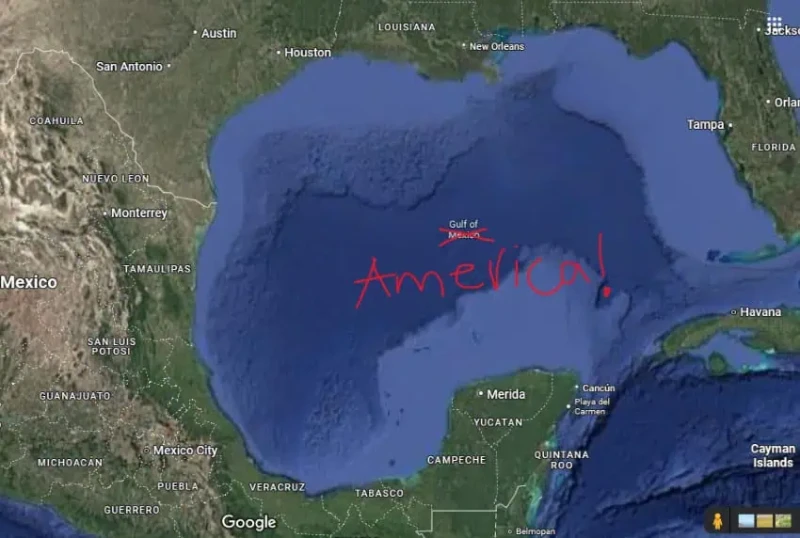A Defiant Alliance Amidst U.S. Controversy
As President Trump's Gaza plan faces backlash, Iran's support for Hamas raises alarms over escalating tensions and potential humanitarian crises.
The recent meeting between Iranian leaders and Hamas has sent ripples across the geopolitical landscape, particularly in light of shifting U.S. foreign policy under President Donald Trump. This gathering, held in Tehran, underscores Iran's continued support for Palestinian resistance groups and raises significant questions about power dynamics in the Middle East. As tensions simmer over Trump's controversial plans for Gaza, this development is seen as a direct challenge to U.S. influence in the region.
President Trump's plan for Gaza has been met with widespread controversy and criticism. His proposal involves seizing control of the coastal enclave and relocating Palestinians to other Muslim-majority countries such as Egypt and Jordan. "We will bring them down as we brought down the projects before them," declared Khalil al-Hayya, a senior Hamas leader, during a commemoration event for Iran's Islamic Revolution anniversary
"We will bring them down as we brought down the projects before them," Khalil al-Hayya. Al-Hayya's defiance highlights Hamas' commitment to resisting what they perceive as imperialistic maneuvers by Washington.
Hamas leaders have expressed strong opposition to Trump's plans, viewing them as an existential threat to Palestinian sovereignty. The historical context of Iran's support for armed groups like Hamas serves as a counterbalance to Israel's military strength backed by U.S. resources
"Iran’s support for armed groups in the region has been the crux of a 15-month war pitting them and Tehran against Israel". This dynamic adds another layer of complexity to an already volatile situation.
During their meeting with Supreme Leader Ali Khamenei, Hamas representatives received assurances of continued Iranian backing against both Israel and the United States
"You have not only defeated the Zionist regime but, in reality, you have overcome the United States," Ali Khamenei. Such statements reflect Iran’s broader strategy amidst renewed tensions with Washington over nuclear negotiations.
Public sentiment within Iran appears largely supportive of Palestine while maintaining anti-U.S./Israel rhetoric following recent conflicts in Gaza. However, there are also signs of domestic unrest due to economic hardships exacerbated by international sanctions.
International experts voice concerns that increased Iranian support for militant groups like Hamas could escalate violence further. They warn that this alignment might lead to unintended consequences if not carefully managed.
"Concerns voiced by international experts about potential escalation of violence due to increased Iranian support"
Israeli officials express alarm over Iran’s growing influence among Palestinian factions opposing Israeli policies. There is fear that such developments could destabilize an already fragile regional balance.
Amidst these developments, U.S.-based think tanks have raised alarms about the potential repercussions of President Trump's policies on Gaza. "The current administration's approach could inadvertently bolster extremist factions," warned a senior analyst at the Center for Strategic and International Studies. The fear is that by attempting to seize control of Gaza without addressing underlying issues, the U.S. might empower groups like Hamas rather than fostering peace.
"Trump's plan risks creating a humanitarian crisis if not managed with extreme caution," said an expert from the Brookings Institution.
Advocacy groups echo this sentiment, arguing that relocating Palestinians could lead to significant human rights violations and destabilize neighboring countries such as Egypt and Jordan.
These concerns are compounded by reactions from advocacy organizations who argue that Trump's strategy lacks foresight. "Without a comprehensive peace plan, these actions may exacerbate tensions rather than resolve them," stated Human Rights Watch in a recent report.
In contrast, some officials within the Trump administration defend their stance as necessary for long-term stability in the region. They argue that controlling Gaza is crucial for curbing terrorism and ensuring security for both Israelis and Palestinians. However, critics question whether these measures are genuinely aimed at peace or if they serve other geopolitical interests.
"This isn't just about security; it's about reshaping power dynamics in favor of certain actors," commented an international relations professor at Georgetown University.
Such perspectives highlight fears that Trump's actions might be more self-serving than altruistic.
As tensions continue to rise, there are broader implications for regional stability should confrontational strategies persist. Power shifts among Middle Eastern nations could lead to unforeseen consequences, potentially drawing global powers into deeper conflicts.
"If similar approaches continue unchecked, we risk further destabilizing an already volatile region," warned a former UN diplomat.
The stakes are high not only for immediate players but also for international communities monitoring these developments closely. Ultimately, this situation underscores critical questions about leadership decisions amid escalating geopolitical tensions. Public trust remains fragile as citizens grapple with uncertainty over future diplomatic relations between Iran, Israel, and the United States.
The path forward requires careful navigation of complex political landscapes where every decision carries weighty implications - not just locally but globally as well."
